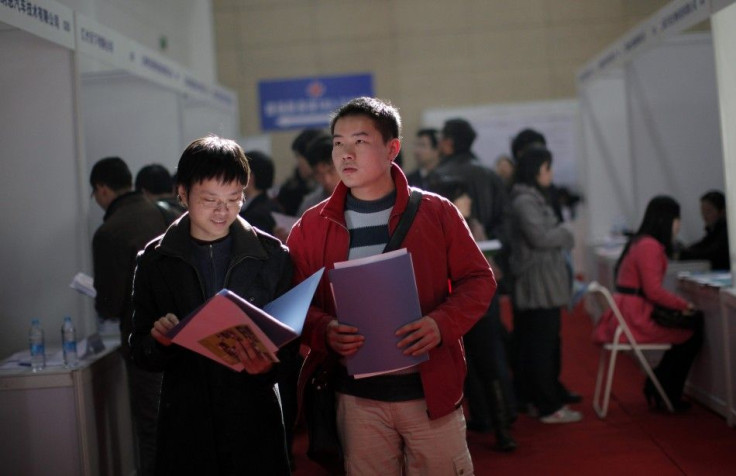China's Government Plans Old-Style Communist Ideological Education For Young Teachers

China’s central government is making a push for education funding, specifically targeting the nation’s younger teachers and professors. The Ministry of Education announced a seven-part document that would focus on the enhancement of “ideological and political” training of the nation’s younger educators, who were less familiar with Maoist doctrine.
According to state-run Xinhua News Agency, the Ministry of Education, along with the Organizational Department of the Communist Party, has released a joint statement announcing the importance of “improving ideological training” for younger teachers “in the new situation.” Analysts who have deciphered the verbose language surrounding the main idea of the proposal believe this is an effort at tightening political and economic ideology while China turns even more into a capitalist powerhouse. This announcement comes on the heels of the rumored “seven taboos of higher education,” which were reported earlier this month.
According to anonymous sources, a list of seven items set by the general office of the Communist Party’s Central Committee, which will serve as guidelines for education, was distributed to select teaching groups and administrative staff at universities across the nation. The seven unmentionable topics are the following: universal values, press freedom, civil society, citizens’ rights, the historical mistakes of the Party, the financial and political elite, and judicial independence.
According to the South China Morning Post, the orders given by the Communist Party were not well received. “Are we still a university if we are not allowed to talk about even civil rights and press freedom?” one anonymous law professor in Shanghai asked. “It is apparent back-pedaling if we cannot talk about what the Communist Party did wrong in the past,” a Beijing-based professor added.
The newest announcements confirm what many education analysts believe to be concrete steps in solidifying President Xi Jinping’s ideals, which have been described by some as a “Cultural Revolution mind-set and the mind-set of the former Soviet Union,” by purposefully appealing to teachers under the age of 40. According to Xinhua, teachers under the age of 40 account for 60 percent of all teaching staff at mainland universities. In addition to that, the government is appealing to younger teachers because it believes that they can make a more significant impact, being closer in age to students.
The document says that the Party will in turn reward those who teach the correct Communist ideals, with opportunities for promotion and improved living standards.
When Xi took control in March, many believed that he would represent a more liberal stance. Now, experts are saying that the recent taboo list and the latest advisory confirm that the top leadership is still very much promoting traditional Communist values.
“Both the seven taboos and the latest 16 advisories are new measures of stability maintenance the top leaders introduced because they are realizing there is an unprecedented political crisis, with the young generation being the most powerful threat that could topple the communist regime” Zhang Lifan, a political commentator, said to the South China Morning Post, a Hong Kong-based newspaper.
© Copyright IBTimes 2024. All rights reserved.





















